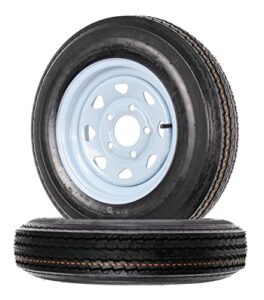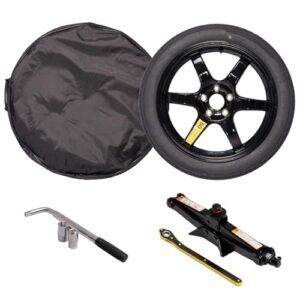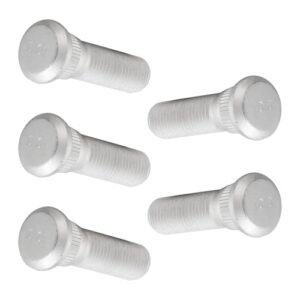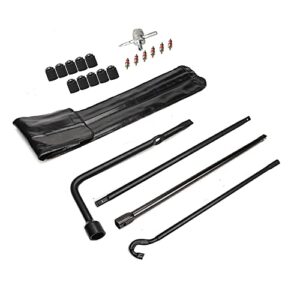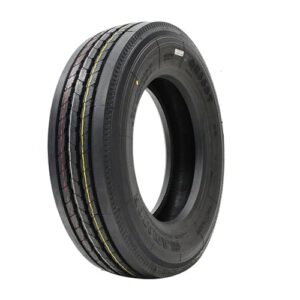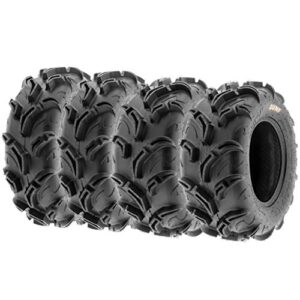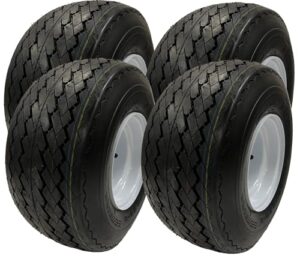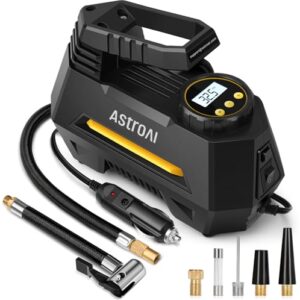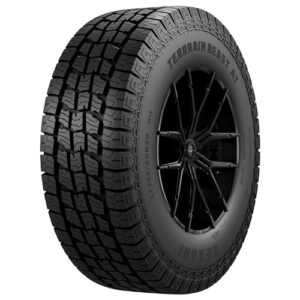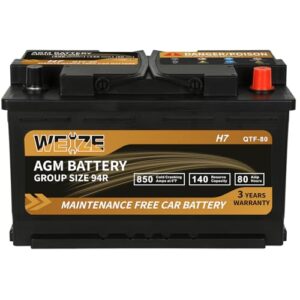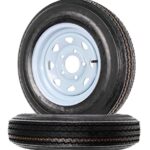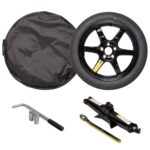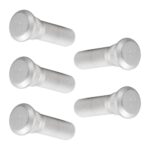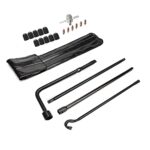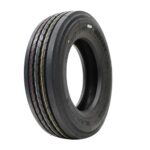Low-profile tires offer improved handling and a sportier appearance. They provide better road grip and improved cornering stability.
Low-profile tires, characterized by their shorter sidewalls, have become popular among driving enthusiasts. They deliver a more responsive driving experience, thanks to their improved road contact. The shorter sidewalls reduce tire flex, enhancing steering precision and performance. These tires also contribute to a vehicle’s aesthetic appeal, giving it a sleek and aggressive look.
While they may offer a firmer ride, the benefits in terms of handling and stability often outweigh this drawback. Low-profile tires are perfect for drivers seeking both performance and style. They are commonly used in sports cars and high-performance vehicles, making them a preferred choice for those who value driving dynamics.
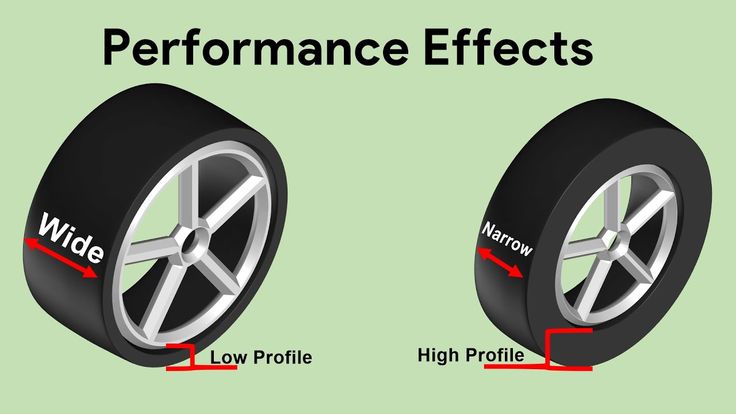
Introduction To Low-profile Tires
Low-profile tires have become a popular choice among car enthusiasts. These tires are known for their unique design and performance benefits. But what exactly are low-profile tires?
Low-profile tires have a shorter sidewall height compared to standard tires. This design offers several advantages, including better handling and a sleek appearance. Let’s explore the history and growing popularity of these tires.
Brief History
Low-profile tires first appeared in the 1960s. They were introduced by car manufacturers to improve vehicle performance. Initially, these tires were used in sports cars and high-performance vehicles. Over time, their benefits became more widely recognized.
By the 1980s, low-profile tires started appearing on luxury sedans and high-end vehicles. The trend continued to grow as more drivers appreciated the benefits. Today, low-profile tires are available for a wide range of cars, from sports cars to family sedans.
Growing Popularity
The popularity of low-profile tires has surged in recent years. One reason is their improved handling and stability. Drivers enjoy better control and responsiveness, especially during high-speed driving.
Another reason is the aesthetic appeal. Low-profile tires give cars a sporty and aggressive look. Car enthusiasts love how these tires improve the overall appearance of their vehicles.
Lastly, advancements in tire technology have made low-profile tires more accessible. Improved materials and designs offer better durability and performance. This has made low-profile tires a popular choice for many drivers.
Improved Performance
Low-profile tires are a popular choice among car enthusiasts. They offer numerous performance benefits. This section will explore how these tires can improve your driving experience.
Improved Handling
Low-profile tires have a shorter sidewall. This design helps reduce tire flex during cornering. With less flex, your car can handle turns more accurately.
Improved handling means better grip on the road. This helps when navigating sharp turns or driving on winding roads. You will feel more in control of your vehicle.
Better Steering Response
Shorter sidewalls also contribute to better steering response. Low-profile tires transmit steering inputs more directly. This results in quicker and more precise steering.
With better steering response, you can make lane changes more confidently. You will also find it easier to avoid obstacles on the road. This makes your driving experience safer and more enjoyable.
Key Benefits of Low-Profile Tires:
- Improved handling
- Better steering response
- Increased road grip
- Improved vehicle control
These benefits make low-profile tires an excellent choice. They offer improved performance for both daily driving and spirited driving.
Aesthetic Appeal
Low-profile tires are not just about performance. They also add a unique look to your car. These tires make your vehicle stand out. They grab attention on the road. Let’s explore their aesthetic benefits.
Sporty Look
Low-profile tires give your car a sporty look. They make your vehicle look sleek. These tires often come with large, stylish rims. This combination improves the overall appearance. People will notice your car more.
Customizable Options
You can customize low-profile tires easily. They come in various sizes and styles. You can choose different rim designs. This allows you to match your car’s look. Customization helps your car reflect your personal style.
Table of Customizable Options
| Option | Description |
|---|---|
| Rim Size | Choose from various diameters |
| Rim Design | Select different spoke patterns |
| Tire Width | Opt for wider or narrower tires |
Low-profile tires offer many customizable options. This makes them a favorite among car enthusiasts. You can easily find a look that suits you. These tires help make your car unique.
Increased Stability
Low-profile tires provide increased stability for your vehicle. This is due to their unique design and construction. These tires have a shorter sidewall and a wider tread. This combination helps to reduce flexing during turns. Let’s dive into the specific benefits:
Lower Center Of Gravity
Low-profile tires help lower the vehicle’s center of gravity. This means the car sits closer to the ground. A lower center of gravity improves handling and reduces body roll. It makes your car feel more stable, especially during sharp turns. This can improve your driving confidence and safety.
Improved Grip
These tires offer improved grip on the road. The wider tread ensures more rubber meets the road. Better grip translates to improved traction. This is especially helpful in wet conditions or during fast driving. More traction means better control and reduced chances of skidding.
| Feature | Benefit |
|---|---|
| Lower Sidewall | Less Flexing |
| Wider Tread | Better Grip |
| Reduced Body Roll | Improved Stability |
In summary, low-profile tires significantly improve your vehicle’s stability. They provide a lower center of gravity and better grip. These benefits lead to a safer and more enjoyable driving experience.
Fuel Efficiency
Low-profile tires offer several benefits, one of which is improved fuel efficiency. This can lead to cost savings over time. Let’s explore how these tires contribute to better fuel economy.
Reduced Rolling Resistance
Low-profile tires often have reduced rolling resistance. This means they require less energy to move. The lower resistance helps the engine perform more efficiently. This ultimately reduces fuel consumption.
Potential Savings
Lower rolling resistance can lead to significant potential savings on fuel. The savings may not be immediate but accumulate over time. Here’s a breakdown of potential savings:
| Fuel Efficiency (MPG) | Annual Savings ($) |
|---|---|
| 1-2 MPG | $50-$100 |
| 3-4 MPG | $150-$200 |
| 5+ MPG | $250+ |
These savings can be substantial over the life of the tire. Investing in low-profile tires can be a smart choice for fuel-conscious drivers.

Impact On Ride Comfort
Low-profile tires are popular for their sporty appearance and performance benefits. Yet, they also affect ride comfort. Understanding these effects can help you decide if low-profile tires are right for you.
Stiffer Ride
Low-profile tires have shorter sidewalls. This makes them stiffer than regular tires. A stiffer tire means less cushioning. The car’s suspension system feels more of the road’s surface. This can result in a bumpier ride. Some drivers like this because it makes the car feel more responsive. Others find it uncomfortable, especially on rough roads.
Noise Considerations
Low-profile tires can be noisier than regular tires. The stiffer construction means less absorption of road noise. You may hear more sounds from the road. This can be annoying on long drives or rough surfaces. Noise levels can vary based on the tire brand and design.
Durability And Wear
Low-profile tires are popular for their sleek look and performance. But, they also offer significant benefits in terms of durability and wear. Understanding these benefits can help you make an informed decision.
Tread Life
Tread life is a crucial aspect of tire durability. Low-profile tires often have a wider tread. This wider surface helps in even distribution of weight. As a result, these tires experience less uneven wear.
Here’s a simple comparison of tread life features:
| Feature | Low-Profile Tires | Regular Tires |
|---|---|---|
| Surface Area | Wider | Narrower |
| Weight Distribution | Even | Uneven |
| Wear Pattern | Less Uneven | More Uneven |
Wider treads can improve the tire’s lifespan. This makes low-profile tires a smart choice for many drivers.
Damage Resistance
Low-profile tires are designed to be more resistant to damage. They usually have stronger sidewalls. This feature helps in reducing the risk of punctures and cuts.
Here are key points on damage resistance:
- Stronger sidewalls help resist punctures
- Improved materials offer added protection
- Better performance in harsh conditions
These features contribute to the overall durability of low-profile tires. They can withstand rough roads and obstacles better. This makes them a reliable option for various driving conditions.
Cost Considerations
When considering the benefits of low-profile tires, it’s important to factor in the cost considerations. These include the initial investment and ongoing maintenance costs.
Initial Investment
Low-profile tires often come with a higher initial investment. This is due to their specialized design and materials. Here’s a simple table to illustrate the cost differences:
| Tire Type | Average Cost |
|---|---|
| Standard Tires | $100 – $150 |
| Low-Profile Tires | $150 – $300 |
While the initial cost is higher, low-profile tires offer improved performance. This can be a valuable trade-off for many drivers.
Maintenance Costs
Maintenance costs can be higher for low-profile tires. They are more prone to wear and damage. Here are some key points to consider:
- Frequent replacement may be necessary.
- Repair costs can be higher due to specialized parts.
- Alignment checks should be more frequent.
Maintaining low-profile tires can be more expensive. However, the performance benefits they offer can justify these costs for many drivers.
Frequently Asked Questions
Is It Better To Have Low Profile Tires?
Low profile tires improve handling and aesthetics but offer a stiffer ride and less protection against road damage.
What Are The Disadvantages Of Low Profile Tyres?
Low profile tyres offer less comfort, increased road noise, and higher risk of damage. They wear out faster and are costlier to replace.
Do Low Profile Tires Get Better Gas Mileage?
Low profile tires typically do not improve gas mileage. They have more rolling resistance and can decrease fuel efficiency.
Do Low Profile Tires Make The Ride Rougher?
Yes, low profile tires often result in a rougher ride. They have less cushioning due to shorter sidewalls. The reduced flexibility makes road imperfections more noticeable.
Conclusion
Low-profile tires offer improved handling and a sleek appearance. They improve road grip and vehicle responsiveness. Their modern design complements sporty aesthetics. These benefits make them a popular choice for many drivers. Consider low-profile tires for a better driving experience and improved vehicle performance.




